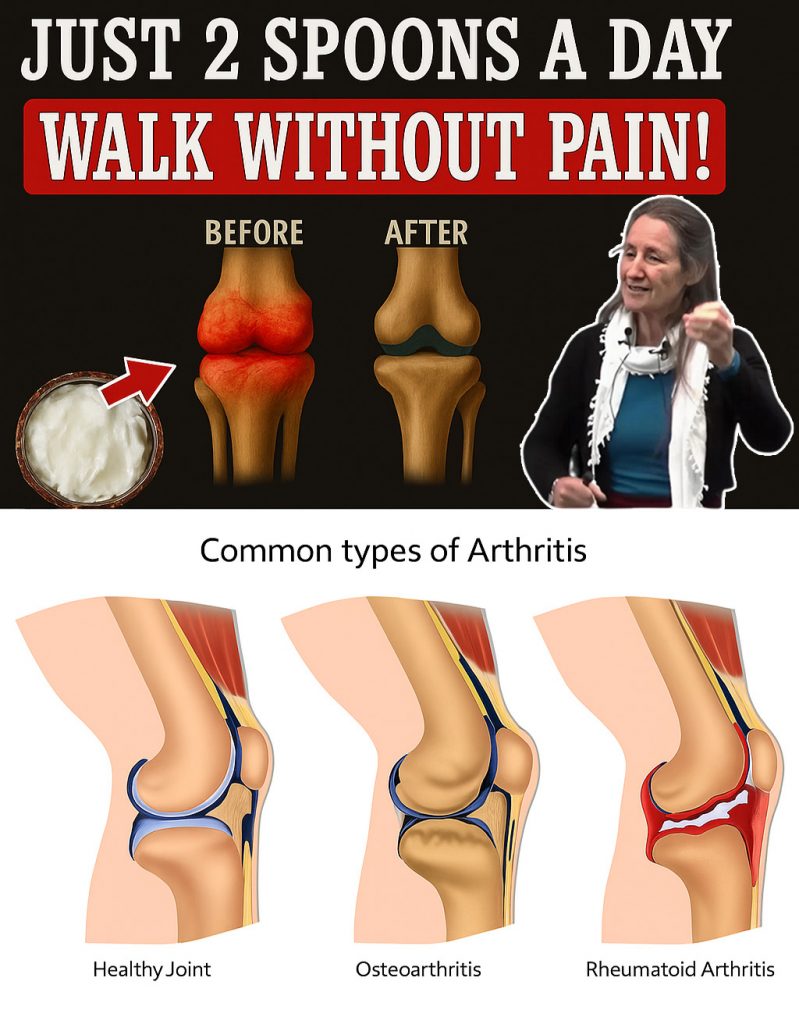The biggest hype to debunk is the myth that food can “rebuild” or “regenerate” significant knee cartilage lost due to conditions like osteoarthritis (OA). Cartilage is avascular (lacks blood vessels) and has a very limited capacity for self-repair.1

However, a smart, targeted diet can absolutely slow degradation, reduce inflammation, and provide the building blocks necessary for cartilage maintenance and symptom relief.2
The best dietary strategy focuses on two key goals: reducing systemic inflammation and supplying key nutrients for collagen synthesis.
I. Focus: Anti-Inflammatory Foods (Slowing Cartilage Degradation)

Chronic inflammation is the main driver of cartilage breakdown.3 By adopting a diet that mirrors the Mediterranean pattern, you can combat this at the cellular level.
| Food Category | Key Compound | Benefit for Joints |
| 1. Fatty Fish (Salmon, Mackerel, Sardines) | Omega-3 Fatty Acids | Powerful anti-inflammatories that reduce the production of enzymes that damage cartilage. |
| 2. Extra Virgin Olive Oil | Oleocanthal | A phenolic compound with anti-inflammatory properties similar to nonsteroidal anti-inflammatory drugs (NSAIDs) like ibuprofen. |
| 3. Turmeric | Curcumin | A potent anti-inflammatory and antioxidant that targets and blocks pro-inflammatory cytokines, reducing pain and swelling. |
| 4. Fruits & Berries (Blueberries, Cherries, Pomegranates) | Anthocyanins & Antioxidants | These brightly colored compounds protect joint tissues from oxidative stress, a factor in OA progression. Tart cherry juice is particularly noted for reducing inflammation. |
| 5. Leafy Greens & Cruciferous Veggies (Broccoli, Spinach, Kale) | Sulforaphane, Vitamins K & C | Broccoli contains sulforaphane, which some studies suggest can slow or prevent the destruction of cartilage. These veggies are generally rich in anti-inflammatory micronutrients. |
| 6. Garlic & Ginger | Sulfur Compounds & Gingerols | Both spices have proven anti-inflammatory effects. Garlic contains a compound that may work against cartilage-damaging enzymes. |
II. Focus: Cartilage Building Blocks (Maintenance and Support)

While food cannot create a new meniscus, it can provide the raw materials (collagen precursors) your body needs for routine maintenance and repair of minor damage.
| Food Category | Key Nutrient | Role in Cartilage Health |
| 7. Citrus Fruits & Peppers (Oranges, Red Bell Peppers) | Vitamin C | Essential co-factor for the synthesis of collagen, the main protein structure in cartilage. Getting enough Vitamin C is non-negotiable for joint health. |
| 8. Nuts & Seeds (Walnuts, Flax, Chia, Almonds) | Omega-3s, Magnesium, Vitamin E | Supplies key anti-inflammatory fats and minerals (like magnesium) needed to support strong bones and connective tissue around the joint. |
| 9. Bone Broth | Collagen, Gelatin, Glucosamine, Chondroitin | While studies are mixed on direct absorption, this provides all the raw, bioavailable building blocks used to form and maintain cartilage and connective tissue. |
| 10. Low-Fat Dairy & Fortified Foods | Calcium & Vitamin D | Crucial for bone strength. Strong bones reduce the overall stress and structural strain placed on the knee joint and its cartilage. |
III. The True Secret: Weight Management
The most effective “dietary support” for knee cartilage is maintaining a healthy weight.
Every pound of excess body weight adds multiple pounds of pressure on the knee joints when walking or climbing stairs. Consuming a whole-foods, anti-inflammatory diet (like the Mediterranean Diet) naturally promotes weight loss, which is the single best way to slow cartilage wear and significantly reduce OA pain.









